Chios Historical Sites and Landmarks
Chios, an island in the Aegean Sea, is a treasure trove of historical and cultural landmarks. Known for its rich history, mastic production, and stunning landscapes, this amazing Greek island offers a unique glimpse into the past. This article explores the most significant Chios historical sites, landmarks, archaeological sites, and museums that make Chios a must-visit destination.
Table of Contents
Chios Historical Sites and Landmarks
There are many places on this Greek island where you can imagine yourself in ancient times. It is worth visiting at least some of them for unforgettable memories.
Pyrgi
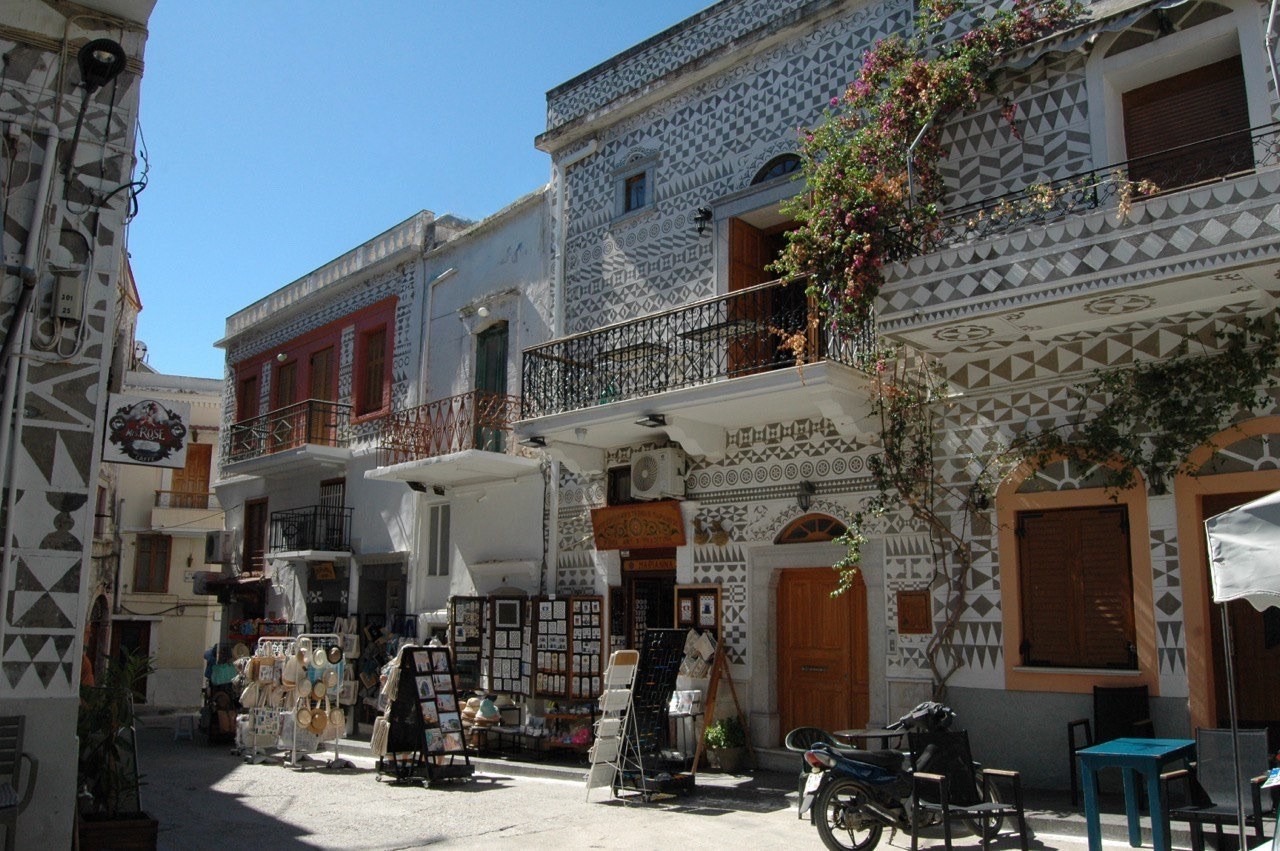
Pyrgi, often referred to as the “painted village,” is renowned for its unique architecture and decorative facades. The geometric patterns on the buildings, known as “xysta,” are a distinctive feature of this village. Pyrgi is a living museum, showcasing the island’s medieval history and architectural ingenuity.
After a good long walk, join the locals on the terrace in the centre or book an overnight stay to enjoy even more of the special atmosphere of this special place.
Mesta
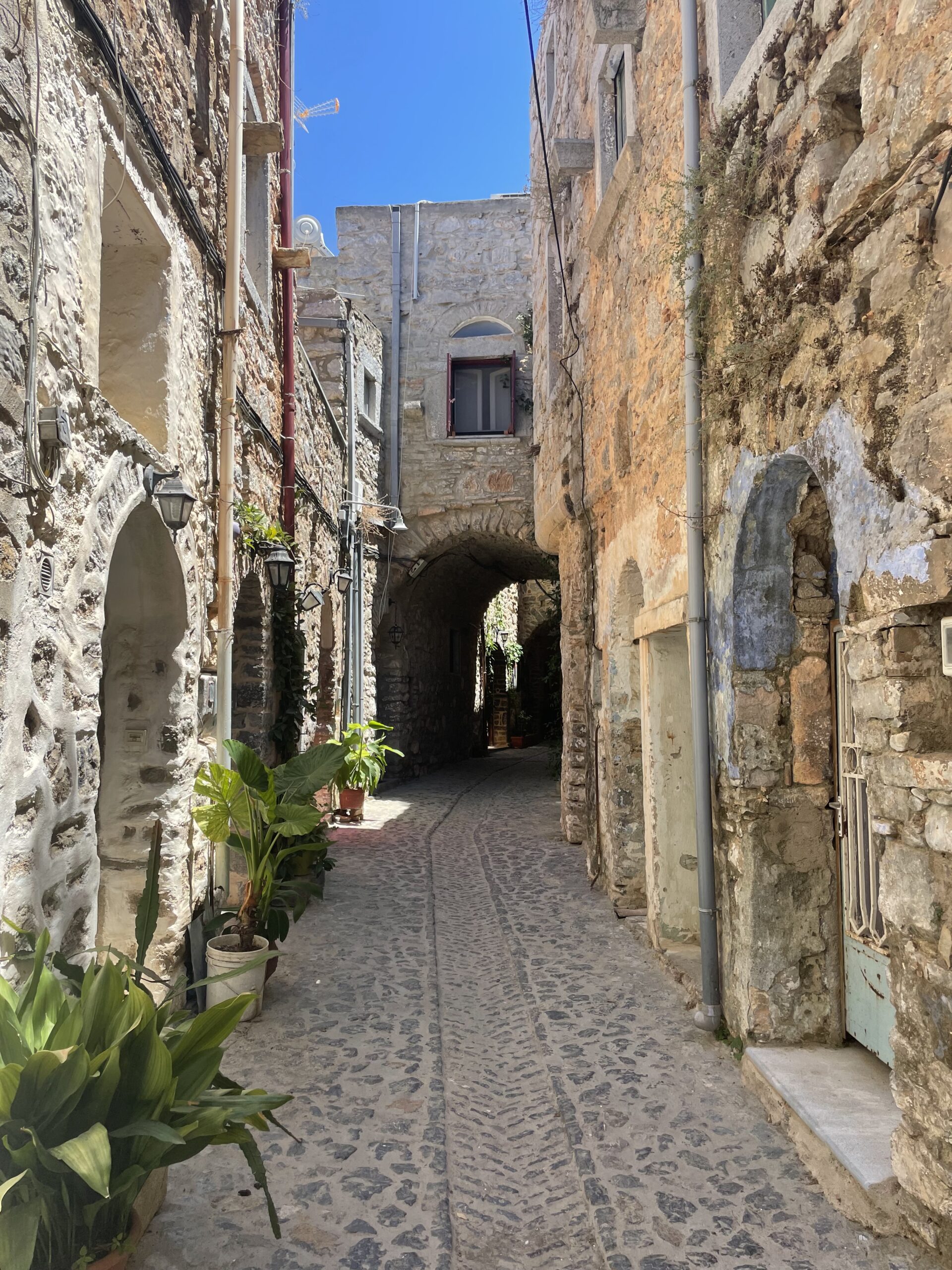
Mesta is one of the famous mastic villages in the southern part of the island of Chios. Narrow alleys paved with stones, stone houses, and small bridges connecting the balconies of the houses: the village seems like a true maze. All over, you can see and smell its flowers. The centre of Mesta features a small square with cosy restaurants and cafes.
Many tourists visit the village to stroll through the narrow streets, shop in quaint little stores and see the historical churches. The real magical atmosphere can be experienced after sunset, which is also the reason for many travelers to stay overnight in this ancient place.
Nea Moni Monastery
The Nea Moni Monastery, a UNESCO World Heritage site, is one of the most important Byzantine monuments in Greece. Founded in the 11th century, the monastery is famous for its stunning mosaics and historical significance. It stands as a testament to the island’s religious and cultural heritage.
Anavatos
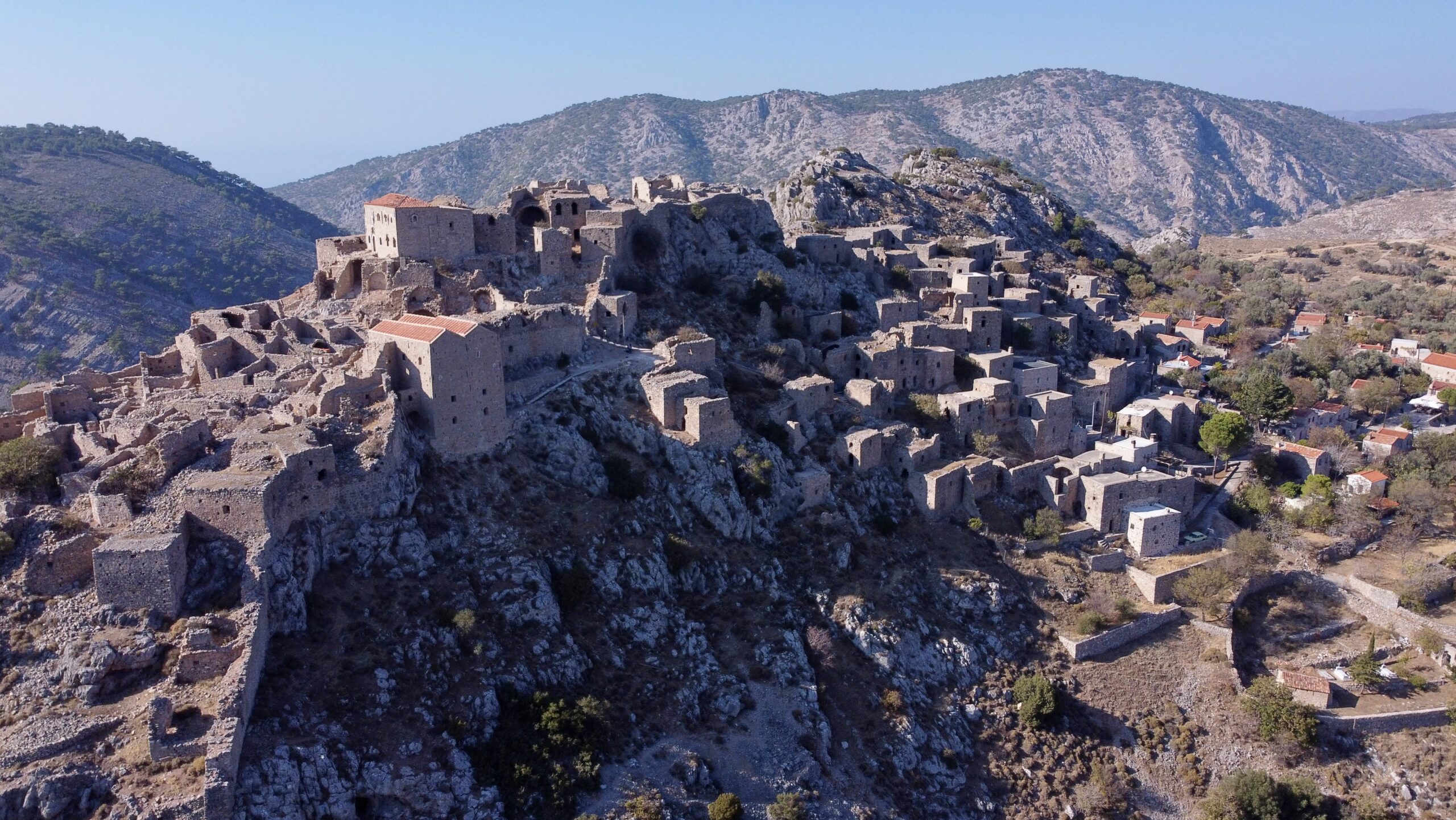
Anavatos, a medieval fortress village, is perched on a rocky hill and offers breathtaking views of the surrounding landscape. This village played a crucial role during the Greek War of Independence and is a symbol of resilience and history. Exploring Anavatos is like stepping back in time.
Olympoi Village
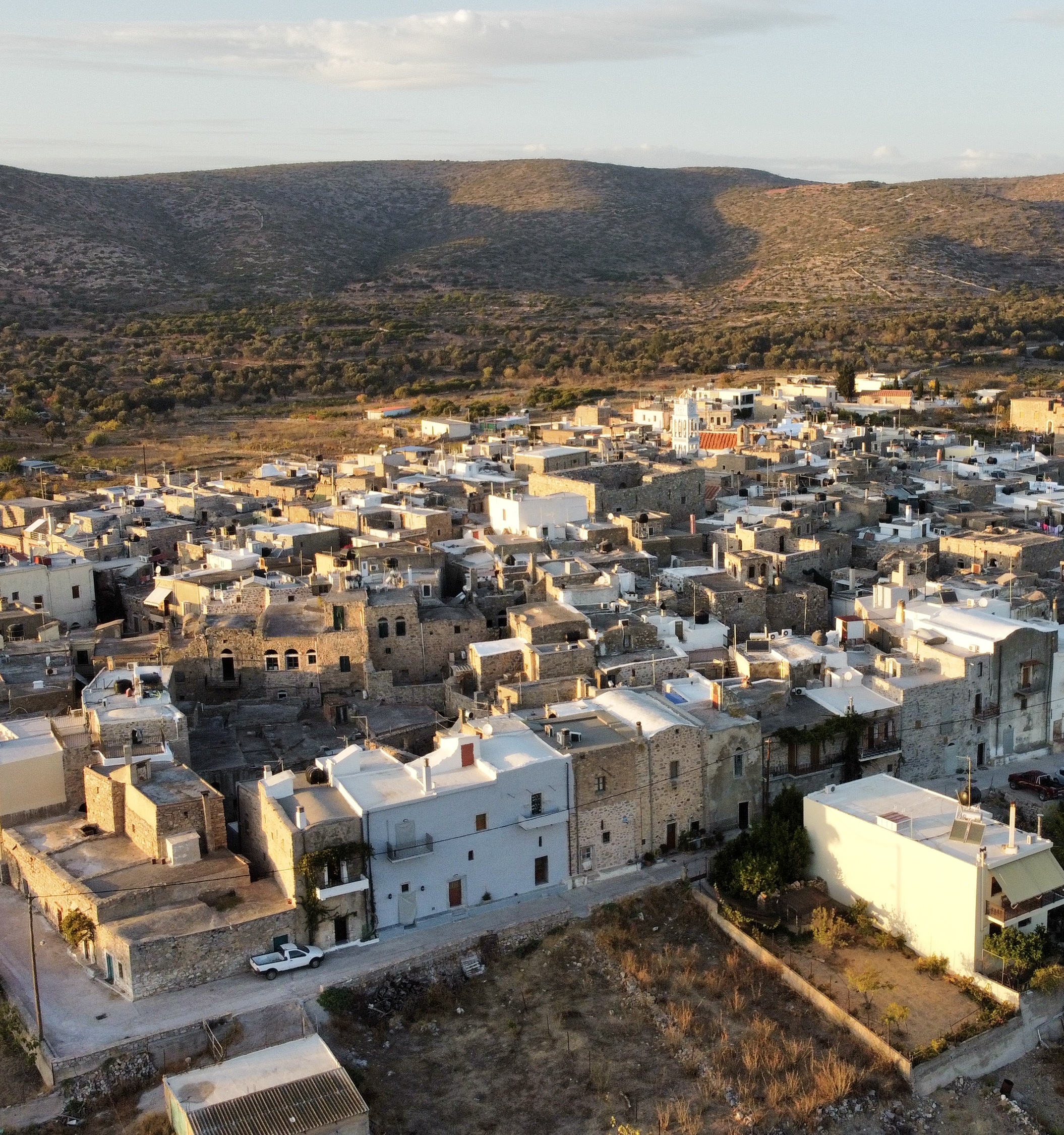
Olympoi is another medieval village that has preserved its traditional architecture and charm. The narrow streets, stone houses, and historical towers make Olympoi a fascinating destination for history enthusiasts. The village is also known for its vibrant cultural festivals.
The Turkish Bath – Chios Castle
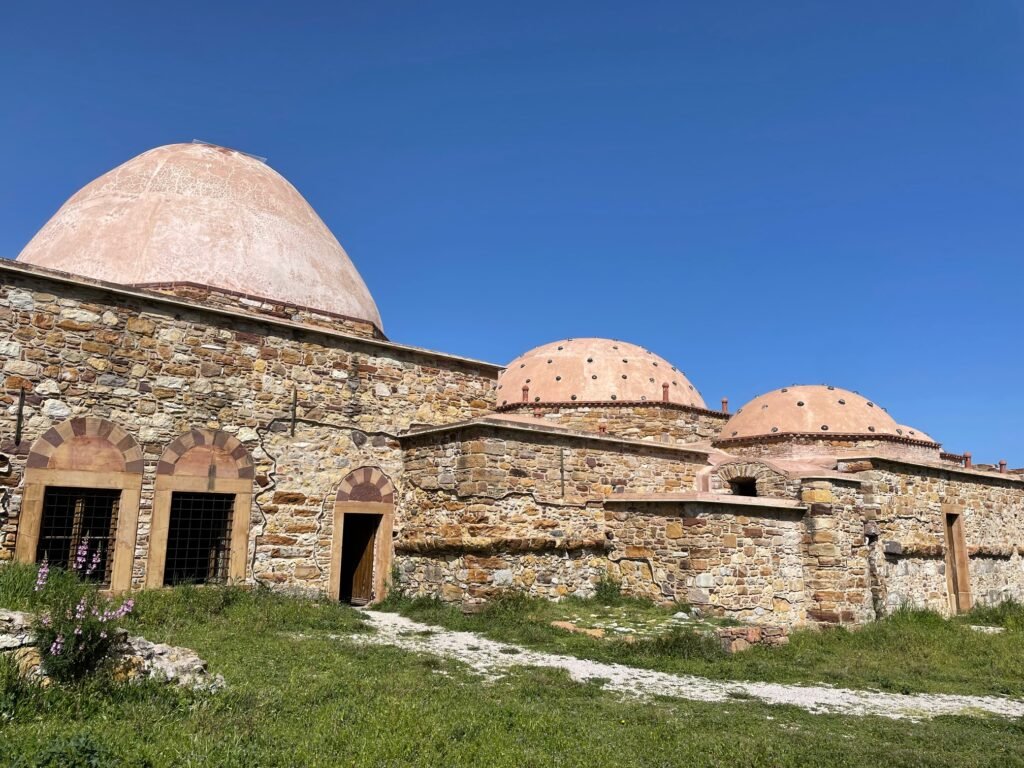
Located within the Chios Castle, the Turkish Bath is a remnant of the Ottoman era. The bathhouse, with its distinctive architecture and historical significance, offers a glimpse into the island’s diverse cultural influences. The Chios Castle itself is a historical landmark worth exploring.
The Turkish bath can be visited from 8:30 a.m. to 3:30 p.m. (closed on Tuesdays). There is no entrance fee.
Chapel Saint Isidore of Sykiada
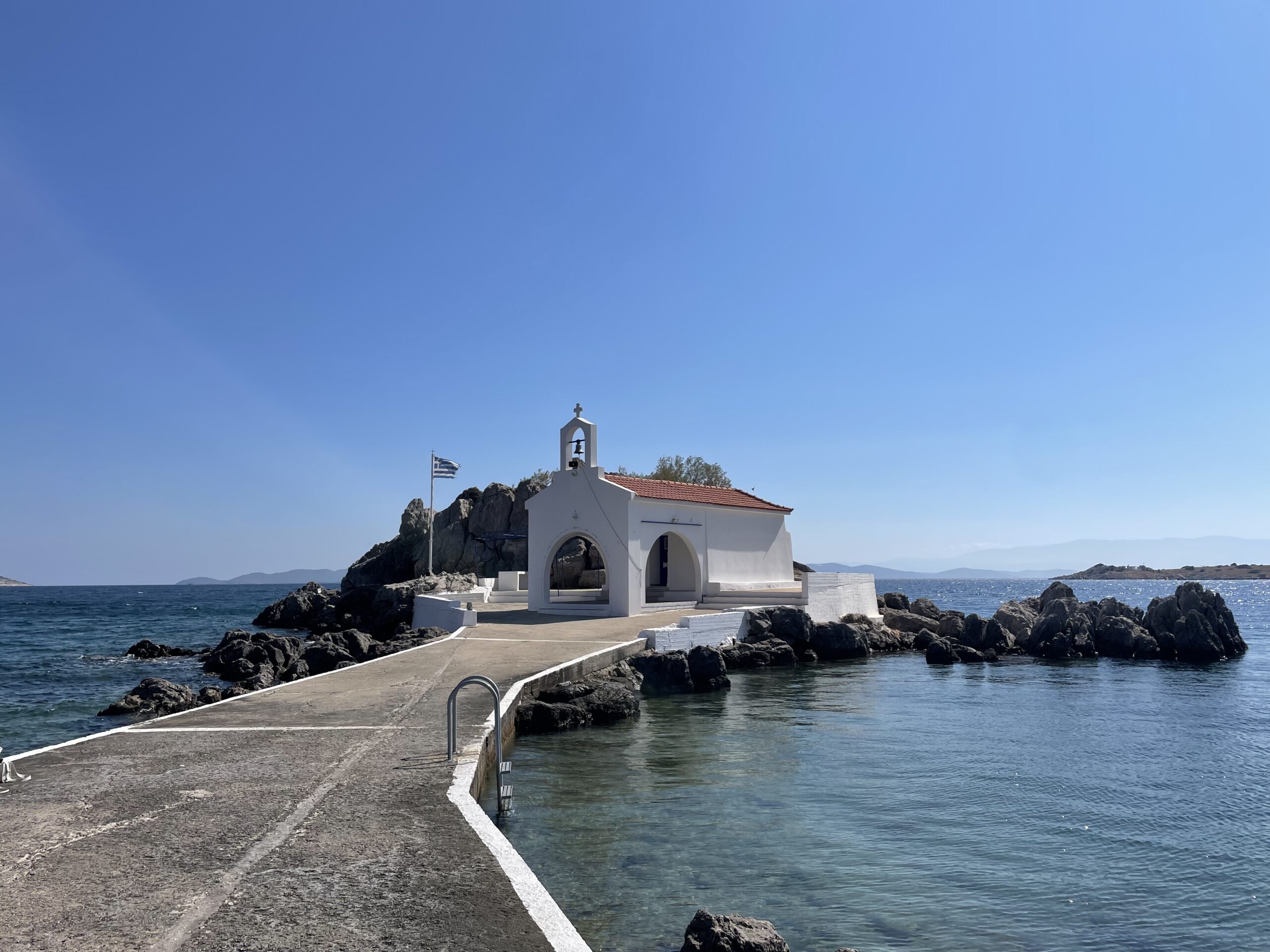
According to tradition, the chapel of Saint Isidoros was built around 1700 A.D. by the first shepherds of the village of Sykiada in a location known as “Paragkli.”
This is one of the quiet Chios historical sites north of the town of Chios. Besides being a beautiful place, you can swim in wonderfully clear waters. If you take the trouble to walk around the chapel on the right side, you will find a lovely place to have a picnic (including a picnic table) by the water.
Chios windmills
About 1.5 km north of Chios are four traditional windmills. These restored windmills were built in the 19th century and are among the most photographed attractions of the island. of Chios are among the most famous sights on the island.
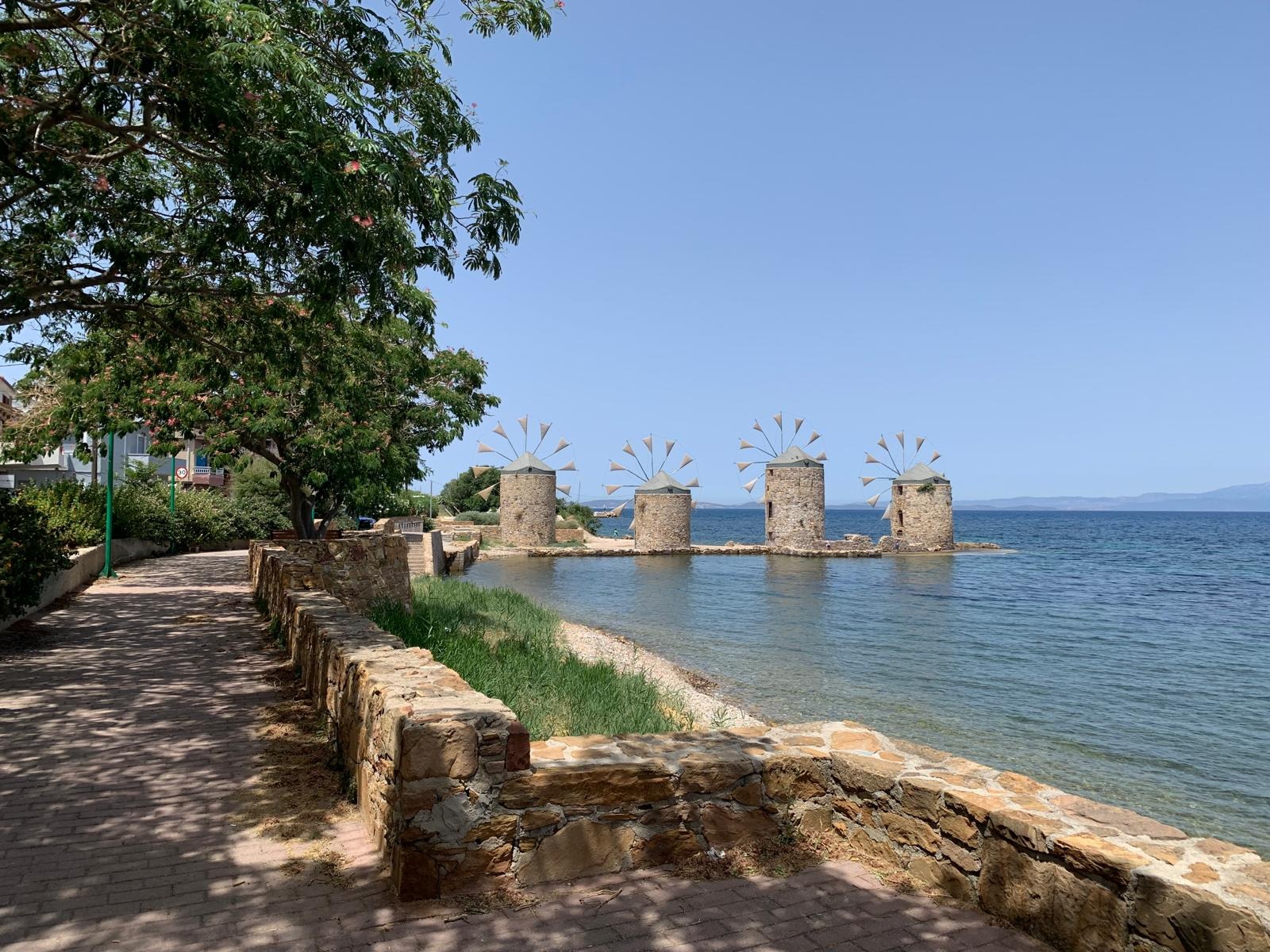
Archaeological Sites and Museums
There are some good museums where you can learn more about Chios historical sites. These museums give a good idea of the history and how it affects modern day life and culture.
Archaeological Museum
The Archaeological Museum of Chios houses an impressive collection of artefacts that span the island’s history from the Neolithic period to the Roman era. The museum’s exhibits provide valuable insights into the island’s ancient civilizations and their contributions to Greek history.
Byzantine Museum
Located in the town of Chios, the Byzantine Museum is dedicated to the island’s Byzantine heritage. The museum features a collection of religious artefacts, icons, and manuscripts that highlight the island’s religious and cultural history during the Byzantine period.
Maritime Museum
The Chios Maritime Museum celebrates the island’s rich maritime history. The museum’s exhibits include ship models, nautical instruments, and historical documents that showcase Chios’s long-standing relationship with the sea. It is a must-visit for anyone interested in maritime history.
Mastic Museum
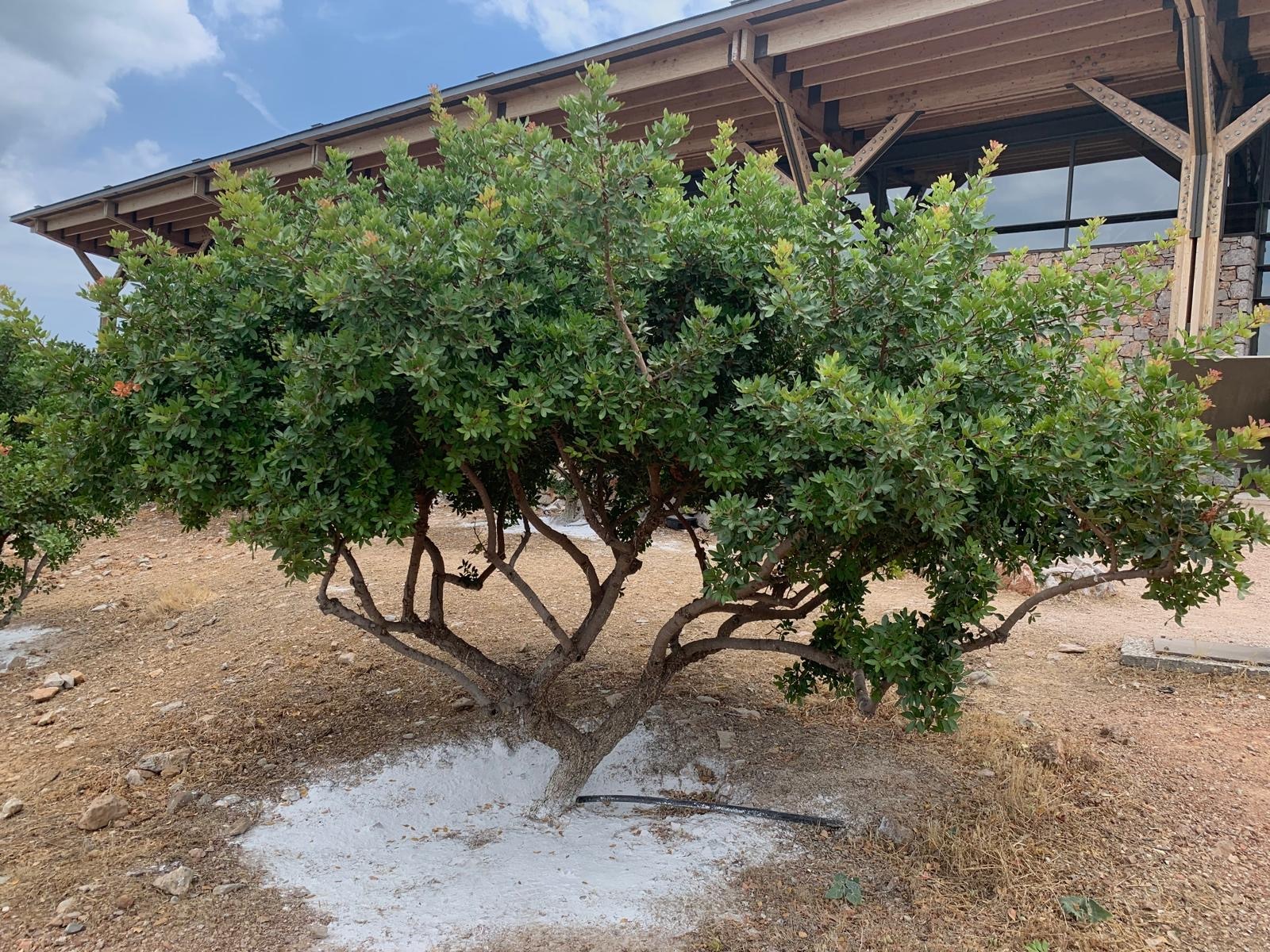
Near the village of Pyrgi you will find the Mastic Museum of Chios. The museum is located on a 12,000 m2 site, almost half of which is set aside for mastic trees. The other part consists of a building with an extensive exhibition on everything related to the history, cultivation and harvesting of mastic and its influence on the rich cultural tradition of Chios.
A visit to this museum is a must to understand the economy and culture of Chios, and it is stimulating to try the local dishes, drinks and sweets with mastic.
Conclusion
Chios historical sites − this great island is a destination that offers a rich tapestry of history, culture, and natural beauty. From its medieval villages and Byzantine monasteries to its archaeological sites and museums, the island is a living testament to Greece’s diverse heritage. Whether you are a history buff, a culture enthusiast, or simply looking to explore a